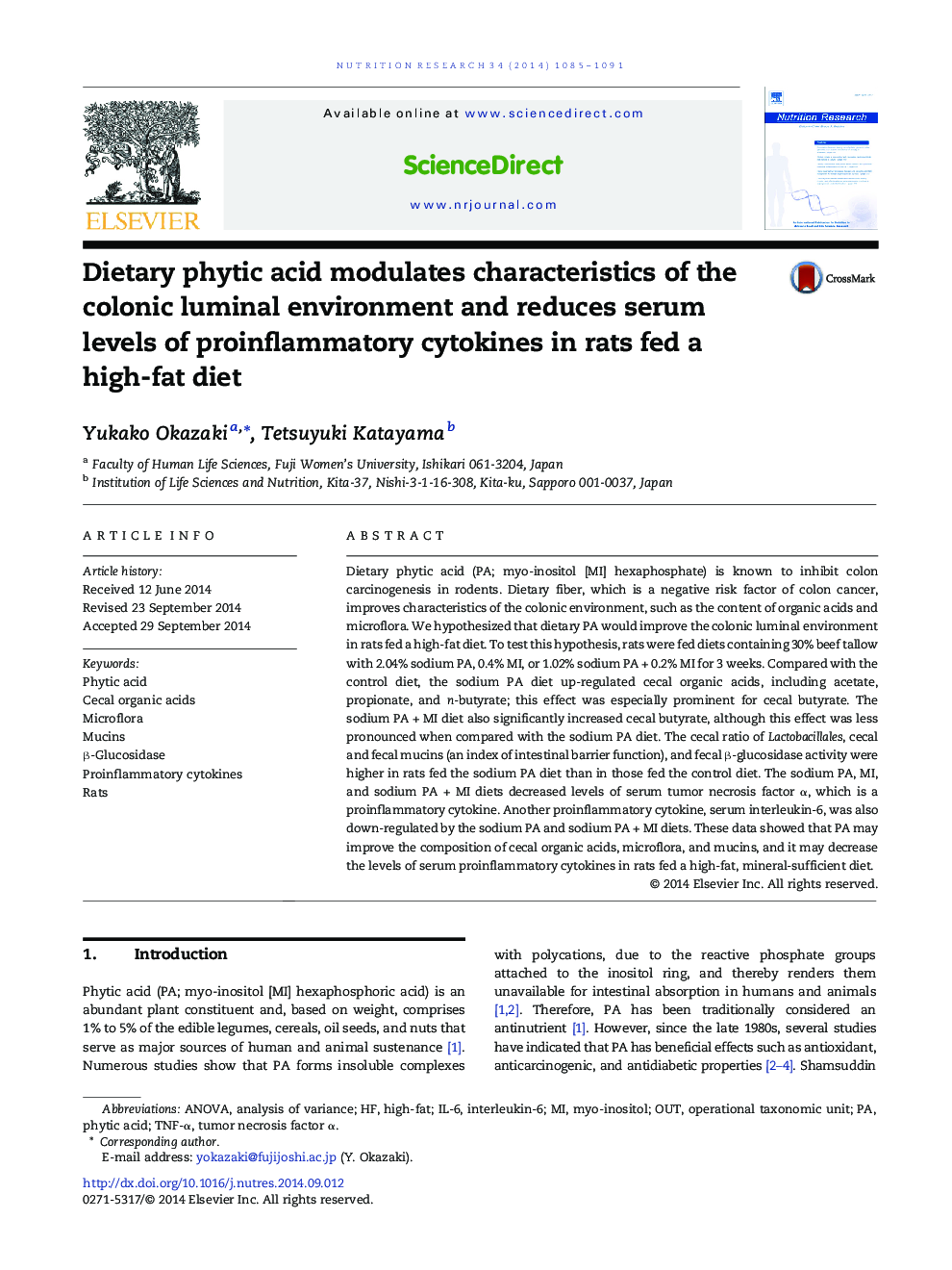| Article ID | Journal | Published Year | Pages | File Type |
|---|---|---|---|---|
| 2808995 | Nutrition Research | 2014 | 7 Pages |
Dietary phytic acid (PA; myo-inositol [MI] hexaphosphate) is known to inhibit colon carcinogenesis in rodents. Dietary fiber, which is a negative risk factor of colon cancer, improves characteristics of the colonic environment, such as the content of organic acids and microflora. We hypothesized that dietary PA would improve the colonic luminal environment in rats fed a high-fat diet. To test this hypothesis, rats were fed diets containing 30% beef tallow with 2.04% sodium PA, 0.4% MI, or 1.02% sodium PA + 0.2% MI for 3 weeks. Compared with the control diet, the sodium PA diet up-regulated cecal organic acids, including acetate, propionate, and n-butyrate; this effect was especially prominent for cecal butyrate. The sodium PA + MI diet also significantly increased cecal butyrate, although this effect was less pronounced when compared with the sodium PA diet. The cecal ratio of Lactobacillales, cecal and fecal mucins (an index of intestinal barrier function), and fecal β-glucosidase activity were higher in rats fed the sodium PA diet than in those fed the control diet. The sodium PA, MI, and sodium PA + MI diets decreased levels of serum tumor necrosis factor α, which is a proinflammatory cytokine. Another proinflammatory cytokine, serum interleukin-6, was also down-regulated by the sodium PA and sodium PA + MI diets. These data showed that PA may improve the composition of cecal organic acids, microflora, and mucins, and it may decrease the levels of serum proinflammatory cytokines in rats fed a high-fat, mineral-sufficient diet.
